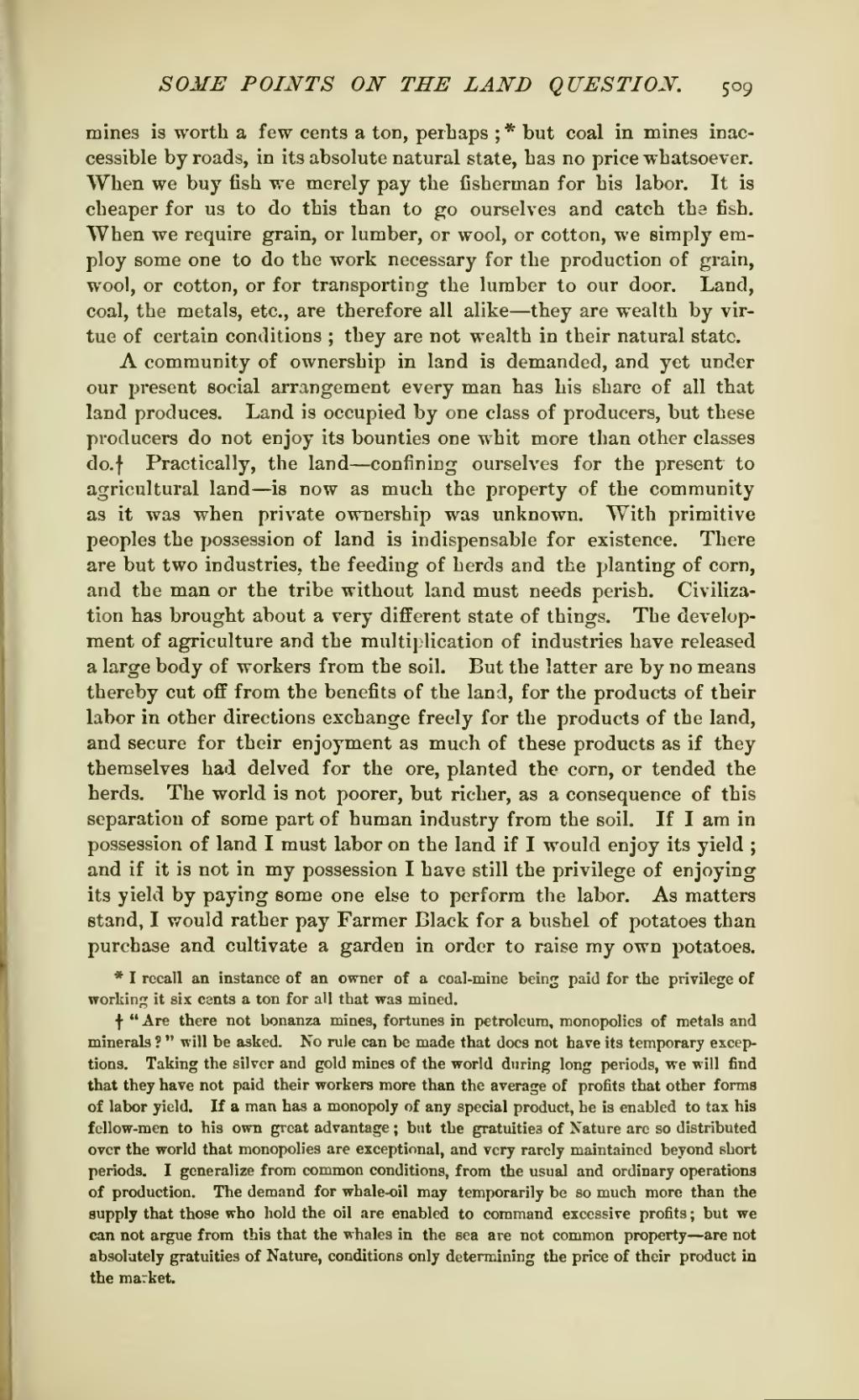mines is worth a few cents a ton, perhaps;[1] but coal in mines inaccessible by roads, in its absolute natural state, has no price whatsoever. When we buy fish we merely pay the fisherman for his labor. It is cheaper for us to do this than to go ourselves and catch the fish. When we require grain, or lumber, or wool, or cotton, we simply employ some one to do the work necessary for the production of grain, wool, or cotton, or for transporting the lumber to our door. Land, coal, the metals, etc., are therefore all alike—they are wealth by virtue of certain conditions; they are not wealth in their natural state.
A community of ownership in land is demanded, and yet under our present social arrangement every man has his share of all that land produces. Land is occupied by one class of producers, but these producers do not enjoy its bounties one whit more than other classes do.[2] Practically, the land—confining ourselves for the present to agricultural land—is now as much the property of the community as it was when private ownership was unknown. With primitive peoples the possession of land is indispensable for existence. There are but two industries, the feeding of herds and the planting of corn, and the man or the tribe without land must needs perish. Civilization has brought about a very different state of things. The development of agriculture and the multiplication of industries have released a large body of workers from the soil. But the latter are by no means thereby cut off from the benefits of the land, for the products of their labor in other directions exchange freely for the products of the land, and secure for their enjoyment as much of these products as if they themselves had delved for the ore, planted the corn, or tended the herds. The world is not poorer, but richer, as a consequence of this separation of some part of human industry from the soil. If I am in possession of land I must labor on the land if I would enjoy its yield; and if it is not in my possession I have still the privilege of enjoying its yield by paying some one else to perform the labor. As matters stand, I would rather pay Farmer Black for a bushel of potatoes than purchase and cultivate a garden in order to raise my own potatoes.
- ↑ I recall an instance of an owner of a coal-mine being paid for the privilege of working it six cents a ton for all that was mined.
- ↑ "Are there not bonanza mines, fortunes in petroleum, monopolies of metals and minerals?" will be asked. No rule can be made that docs not have its temporary exceptions. Taking the silver and gold mines of the world during long periods, we will find that they have not paid their workers more than the average of profits that other forma of labor yield. If a man has a monopoly of any special product, he is enabled to tax his fellow-men to his own great advantage; but the gratuities of Xature are so distributed over the world that monopolies are exceptional, and very rarely maintained beyond short periods. I generalize from common conditions, from the usual and ordinary operations of production. The demand for whale-oil may temporarily be so much more than the supply that those who hold the oil are enabled to command excessive profits; but we can not argue from this that the whales in the sea are not common property—are not absolutely gratuities of Nature, conditions only determining the price of their product in the market.
